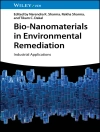Coping with Global Environmental Change, Disasters and Security – Threats, Challenges, Vulnerabilities and Risks reviews conceptual debates and case studies focusing on disasters and security threats, challenges, vulnerabilities and risks in Europe, the Mediterranean and other regions.
It discusses social science concepts of vulnerability and risks, global, regional and national security challenges, global warming, floods, desertification and drought as environmental security challenges, water and food security challenges and vulnerabilities, vulnerability mapping of environmental security challenges and risks, contributions of remote sensing to the recognition of security risks, mainstreaming early warning of conflicts and hazards and provides conceptual and policy conclusions.
Tabla de materias
Forewords.- Dedications.- Acknowledgements.- Prefaces.- Part I Introduction: Concepts of Security Threats, Challenges, Vulnerabilities and Risks.- Part II Securitization of Global Environmental Change.- Part III Economic, Social, Environmental Security and Human Threats, Challenges, Vulnerabilities and Risks in the Near East, North and Sub-Sahara Africa and in Asia, – Part IV Threats, Challenges, Vulnerabilities and Risks for Urban Centres in Hazards and Disasters.- Part V Coping with Global Environmental Change: Climate Change, Soil and Desertification, Water Management, Food and Health.- Part VI Coping with Hazards and Strategies for Coping with Social Vulnerability and Resilience Building, – Part VII Coping with Global Environmental Change: Scientific, International, Regional and National Political Strategies, Policies and Measures.- Part VIII A Technical Tool: Remote Sensing, Vulnerability Mapping and Indicators of Environmental Security Challenges and Risks.- Part IX Towards an Improved Early Warning of Conflicts and Hazards.- Part X Summary and Conclusions.- Abbreviations.- Bibliography.- Biographies of Contributors.- Index.
Sobre el autor
Hans Günter Brauch, Adj. Prof. (PD) at the Free University of Berlin, chairman of AFES-PRESS, senior fellow at UNU-EHS in Bonn and editor of this series; he publishes on security and environment issues. ula Oswald Spring, Professor at UNAM-CRIM, xico; first UNU-EHS chair on social vulnerability; she writes on sustainability, development, gender, disaster, poverty and collaborates with peasants.
John Grin, Professor, Department of Political Science, University of Amsterdam; he publishes on societal transformations in water management, agriculture and health care, and advices practitioners.
Czeslaw Mesjasz, Assoc. Professor, Management, Cracow University of Economics; he publishes on systems and game theory, conflict resolution, negotiation, economics, finance and security.
Patricia Kameri-Mbote, Professor, Strathmore University; Programme Director, International Environmental Law Research Centre, Nairobi; she writes on law, development, property, environment and gender.
Béchir Chourou, Director, University of Tunis-Carthage, he taught International Relations at University of Tunis; he publishes on Euro-Mediterranean relations, food policy and human security in the Arab world.Pal Dunay, Faculty Member, Geneva Centre for Security Policy, Director of International Training Course in Security Policy; he publishes on European security, the post-Soviet space and conventional arms control.Jörn Birkmann, Adj. Prof. (PD) at Bonn University, Head, Vulnerability Assessment, Risk Management and Adaptive Planning Section, United Nations University, Institute for Environment and Human Security.












